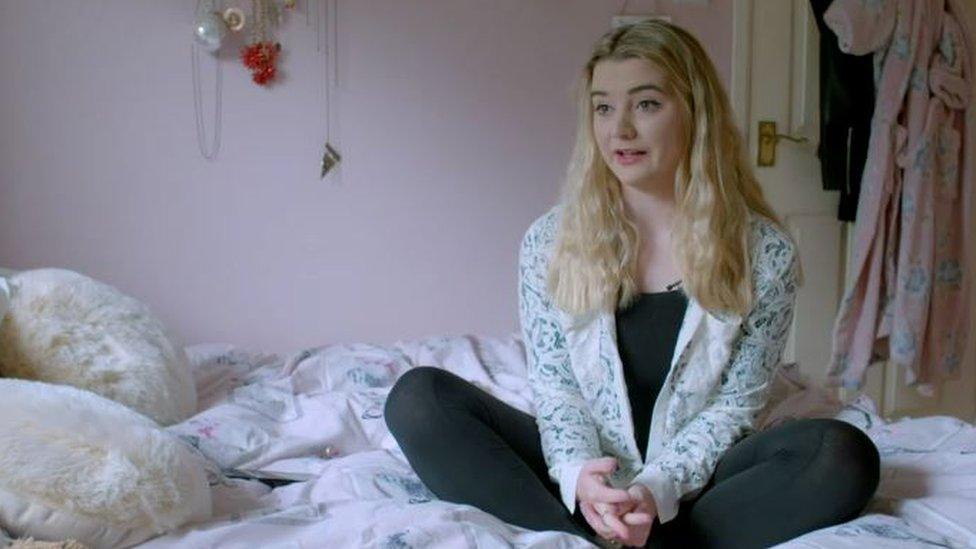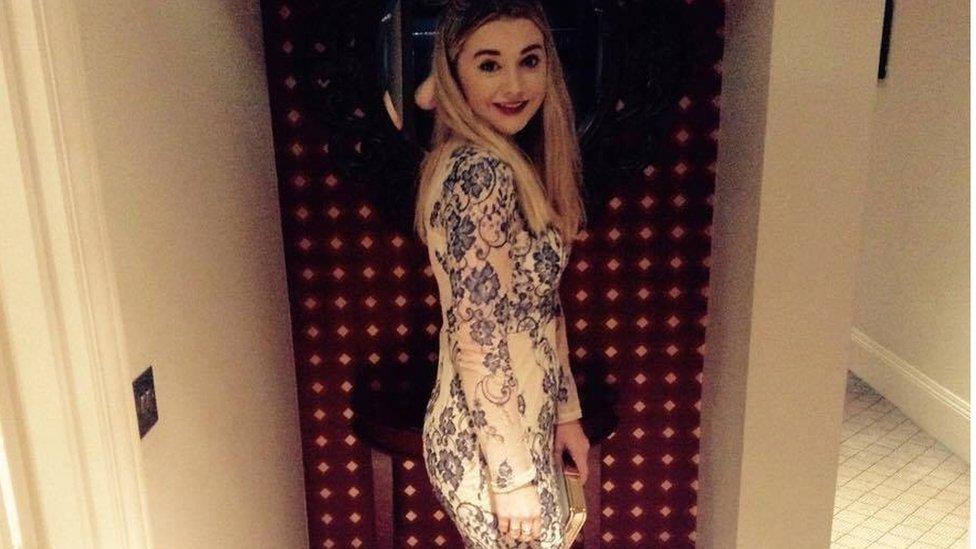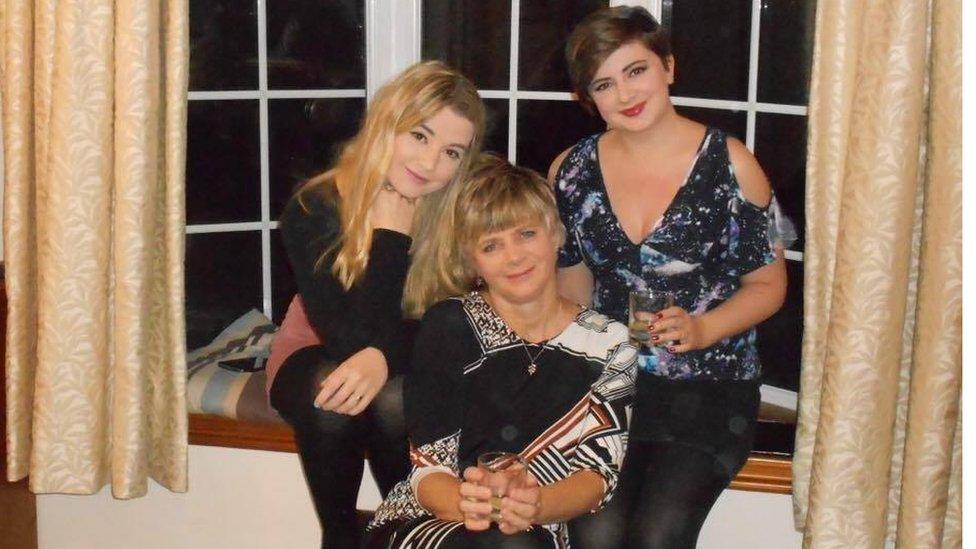Self-Harm: Becci answers your questions
- Published

Becci, 22, self-harmed for six years. She is now learning to live with the scars which that period of her life left behind.
She told her story in a film for the BBC. In response, people sent Becci their questions on living with self-harm. She answers them below:

I have a 15-year-old daughter who has just started self harming. In your view, what is the best thing I can do to help her?
I spoke to my mum about this, as being the person who is self-harming, it can be very difficult to see things from another perspective. Self-harm can be a selfish illness which stems from a much more complex background, so try asking indirect questions about how school is, if she has plans with friends - things that might have affected her.
But above everything, just reassure her that, although you can't and probably will never understand why she feels it's the right way to deal with a situation, you will be there to support her, regardless of what she may say.
Expect many arguments, tears, and at times complete hopelessness, from both of you; but remember that with the right support, love and care, there will be an end.
I'm so glad she felt she could tell you, because the battle becomes so much easier when there is someone else fighting by your side.

How do you cope when people make negative comments? How do you stop it lowering your self-esteem?
It can still be difficult to this day to brush off a negative comment, and act like it doesn't affect me.
But what is best to bear in mind is that these people who make negative comments have no idea of your story; they don't know the ins and outs of your life, and probably never will, because it is your story.
As soon as you can recognise this, it becomes a lot easier to brush off people's negative comments.
There are always going to be people who don't understand you, or perhaps don't want to, and the only way to show them that what they think doesn't affect you, is to not let it affect you.
It can take a long time to work up the confidence to do this, but once you realise that you are living the most positive life you can, the confidence will follow.

Becci and Sarah's story
100 Women 2016: Living with scars and life after self-harm

Was there a defining moment/incident that stopped you from self-harming?
I feel that my stopping self-harming came about over the course of a few months.
I can't say that there was a particular "light bulb" moment, but just more the realisation that I didn't actually want it to last forever.
I went through a six-week intensive therapy course, called Thrive, which made it easy to see my self-harm for what it was - a habit to deal with a bad situation.
I have said since then that self-harm is an addiction that is equally as hard to quit as smoking, for example.
All you need is the will power to fight the cravings, try and see the light in potentially triggering situations, and see a future where you love your body too much to do anything that will harm it.

That was a very brave film for you to make. Can you tell me about any positive feelings you may have about your scars?
It can be difficult to see my scars and think of the actual scars as a positive thing, as they are significant of a difficult time in the past, however, I can look at them and understand and see just how far I have come in the last six years.
I can see my scars, and see them healing ever so slightly every day.
I look down at my scars and see a battle that I won; a really and truly difficult battle, but one that I no longer fear, one that I know that I have and will continue to beat on a daily basis.


How do you handle dating and the anxiety from the possible reactions of your date seeing your scars and you having to explain it?
I am a firm believer that my scars are my story to tell, and I will tell my date if they prove themselves worthy of it.
In the past, I have worn a jumper and jeans out on a date in the middle of summer, because I would rather be a sweaty mess than come across as "crazy" to a potential new partner.
There is still always a slight anticipation of "What will they think?" or "Will they question me about it?" but if they do, it is completely your prerogative as to whether you want to answer them honestly or not.
Also, when you do feel the time is right to talk honestly about it, if they feel uncomfortable or aren't at all accepting, then they are not worth one more second of your time.
Scars are not something to be embarrassed about, and finding someone to accept them as a part of you is so important.


Becci with her mum and her sister
How do you cope with the judgement that flicks across people's faces the moment they realise that you have self-harmed? I struggle with it.
There is such a huge taboo around self-harm, and you will constantly see the looks that flicker across people's faces.
It isn't even just judgement, it ranges from pity to confusion, and it is a difficult thing to deal with.
However, the only way to fight this taboo subject is to continue to talk about it.
The more confidently you talk about it, and the more matter of fact you are about it, the more accepting people will have to be.
That goes for society too; there will always be judgement for things that aren't understood, for anything that isn't considered the "norm", however, the more awareness and understanding there is, the less judgemental stares we have to face.
Your scars do not have to be a sign of weakness; you can wear them out, and be confident in yourself about the battles you have fought and won.

by UGC & Social News team